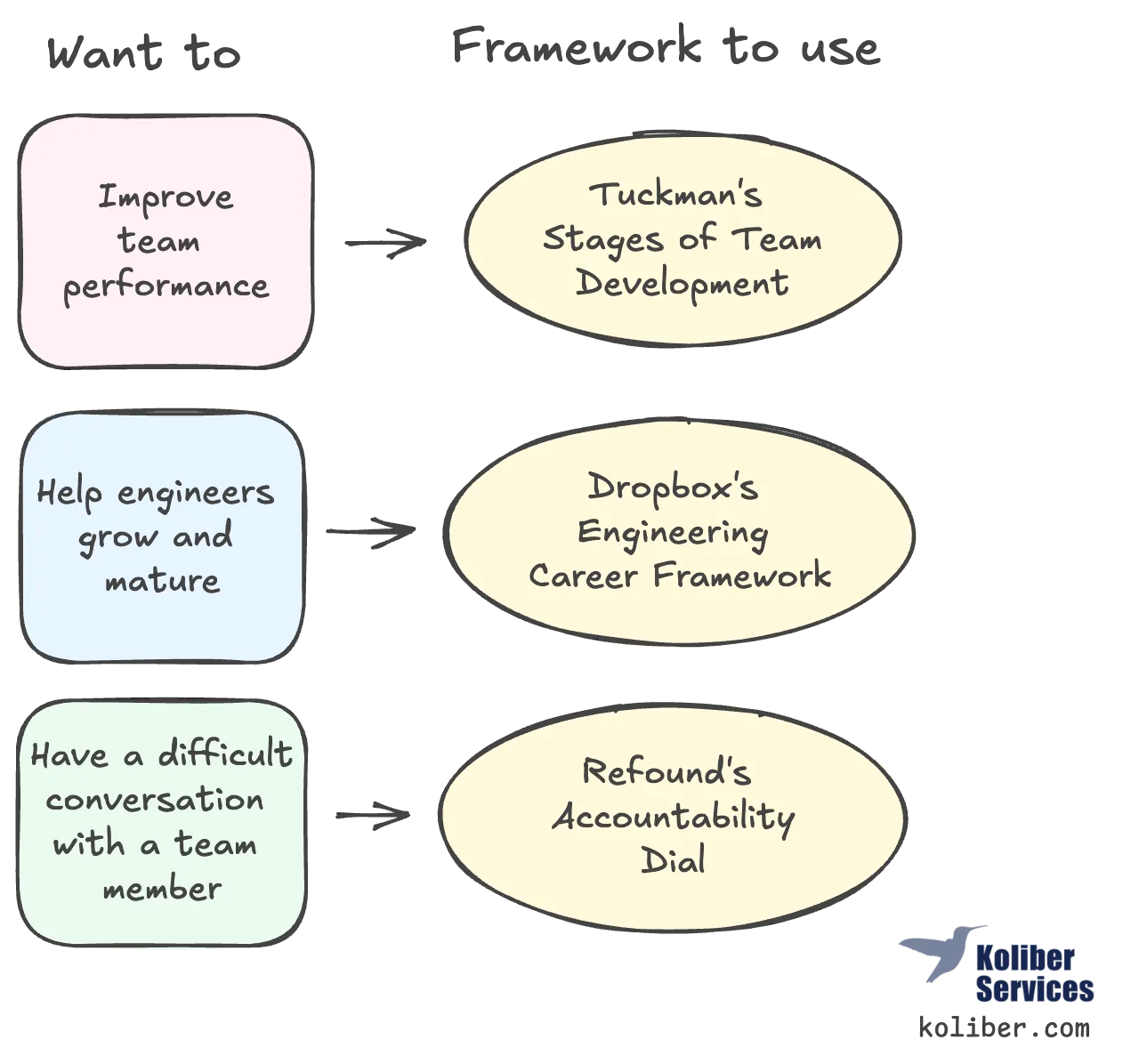Demystifying "Soft Skills" for New Engineering Managers
Engineers hesitate to transition into management roles, fearing they lack the necessary "soft skills." In reality, many such soft skills are just skillfully using proven tools and methods. These frameworks provide structure and guidance for navigating the new challenges that come with a managerial position.
Useful Frameworks for Engineering Managers

- Tuckman Stages of Team Development
- Useful for: New managers looking to understand and influence team dynamics
- Helps visualize the team as an entity that evolves through distinct stages
- Recommended resource: West Chester University's overview
- Accountability Dial
- Useful for: Conducting difficult conversations and driving results
- Provides a structured approach to addressing performance issues
- Learn more: Refound's guide to the Accountability Dial
- Dropbox's Career Framework
- Useful for: Assessing individual progress and identifying growth opportunities
- Offers a clear path for personal development within the organization
- Explore the framework: Dropbox Career Framework
The "Aha" Moment
New managers often experience an "aha" moments when they learn about these frameworks. These moments of clarity happen when managers think about a particular challenge and connect it with an appropriate framework. Frameworks like these provide practical strategies for handling novel situations, demonstrating that much of what we consider "soft skills" is actually based on structured, learnable practices.
Conclusion
The transition to management doesn't require innate gifts. Instead, it involves applying established frameworks to new challenges. By leveraging these tools, new engineering managers can develop the skills needed to excel in their roles, regardless of their starting point. Engineers are great at thinking systematically. Engineers can effectively manage their teams and grow into new roles by learning and using established frameworks.

